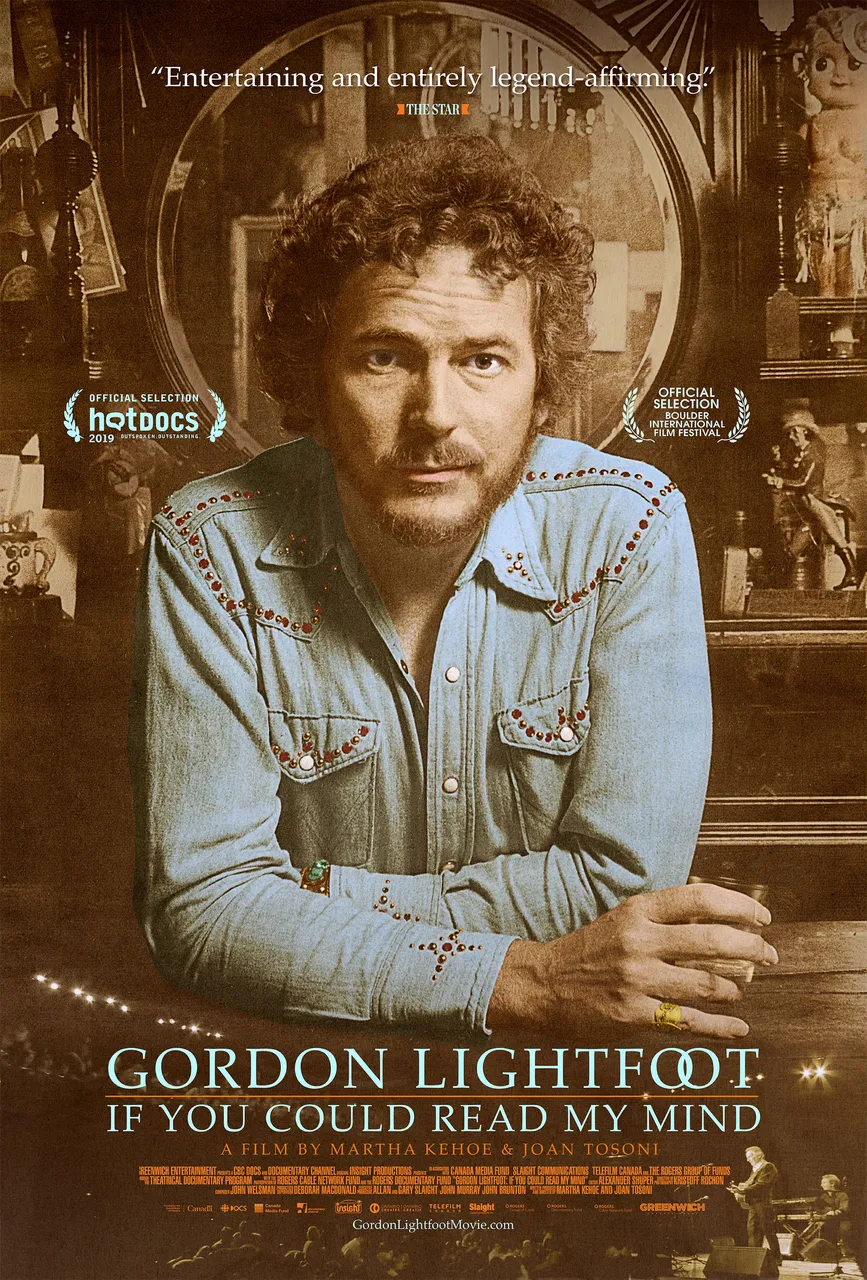A new Gordon Lightfoot documentary is less glitter and more gold
By Joe Nolan

Gordon Lightfoot was the second concert I ever went to as a high school kid in the 1980s. Lightfoot wasn’t a big star for most kids then – his last gold album had been 1978’s Endless Wire. The singer-songwriter struggled through the Reagan years as much as Bob Dylan and the other troubadours of the 1960s folk era, trying to stay relevant in a wake of music videos, piano ties and new wave synth pop. I fell for the second British Invasion as much as any kid in Michigan, but when I started playing guitar at the age of 15 I also fell in love with songwriting and lyrics. And if you you were a 15-year-old songwriter in Michigan in the mid-1980s, you held Lightfoot in awe.
The new Lightfoot documentary, If You Could Read My Mind is about as close as any of us will get to peeking between the songwriter’s ears, into the inner-workings of his creative process and the struggles in his personal life. The film doesn’t offer many surprises: we’re predictably treated to almost exactly an hour and a half of archival footage, comments from admiring friends and music luminaries, and commentary from Lightfoot himself who’s energetic, eloquent and even sometimes revealing and vulnerable at the venerable age of 82. How this film works isn’t remarkable, but what it does feels important, and even necessary: it places Lightfoot and his songs where they belong, alongside giants like Bob Dylan and Leonard Cohen. And it reminds all of us from south of the Great White North that Lightfoot might be Canada’s most quintessential music icon.
Lightfoot grew up in Orillia, Ontario. He showed musical talent at an early age and his mother’s coaching and encouragement made him into a performer while he was still in grade school. Lightfoot was a soprano in a local church choir before a stint with a pint-sized barber shop quartet. By the time he was in high school he was a drummer and singer in a dance band, and after graduation he left home for Los Angeles where he studied jazz composition and orchestration at Westlake College of Music. If You Could Read My Mind spotlights Lightfoot’s natural gifts for songwriting and singing, but it also underlines Lightfoot’s music education, his guitar playing chops, and – especially – his discipline and determination as a student of songcraft.
“You knew you had to do it,” he explains. “Sit down at the table and actually do it.”
It was in a chair at a desk in a basement apartment in Toronto where Lightfoot penned “Early Morning Rain” and “That’s What You Get for Loving Me.” The songs were recorded – and charted – by the likes of Peter, Paul and Mary, Judy Collins and Elvis Presley, and Lightfoot established his reputation as a songwriter who could score a hit. He signed with the infamous music manager Albert Grossman who got Lightfoot a recording contract with United Artists. His 1966 debut album was a flop before “If You Could Read My Mind” became a surprise radio hit. The album was a smash, and the song was subsequently recorded by a slew of diverse artists including Barbara Streisand, Olivia Newton-John and Johnny Cash.
The 1960s and 1970s saw Lightfoot win critical and popular acclaim even as he struggled with fame, troubled romantic relationships, and the booze he used to smooth-out the rough patches. His 1976 masterpiece, Summertime Dream chronicled “The Wreck of the Edmund Fitzgerald” and sealed Lightfoot’s legend as one of rock’s greatest poetic songwriters. The tune still engulfs the airways across the industrial Midwest every November when the titular Lake Superior shipwreck is remembered. I was fifteen years old the first time I saw Lightfoot perform the song live. For me, it was as important as seeing Michael Jackson moonwalking across the TV screen. This movie explains why.
